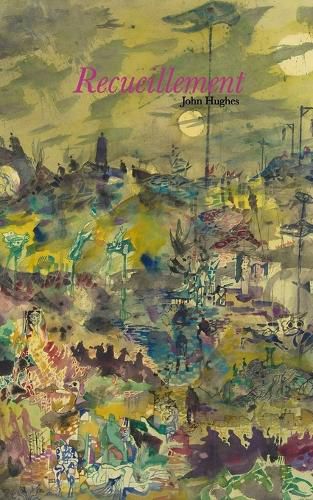Readings Newsletter
Become a Readings Member to make your shopping experience even easier.
Sign in or sign up for free!
You’re not far away from qualifying for FREE standard shipping within Australia
You’ve qualified for FREE standard shipping within Australia
The cart is loading…






This title is printed to order. This book may have been self-published. If so, we cannot guarantee the quality of the content. In the main most books will have gone through the editing process however some may not. We therefore suggest that you be aware of this before ordering this book. If in doubt check either the author or publisher’s details as we are unable to accept any returns unless they are faulty. Please contact us if you have any questions.
In the 1990s, Hughes was inspired by the seventeenth-century Pensees of its wonder boy prodigy Blaise Pascal and the twentieth century's Italian literary impresario, Eugenio Montale. Recueillement, is his earliest foray into thinking about the rituals of spirit. He created responses to society, where a thematic fingerprint of damage, desire, and deceit became a rich departure point for his ensuing humanistic works. For Hughes, love is a swampy boneyard where loss and lust linger in a vapour trail of dislocations, honour, and confused hope. His poetry's strength lies in its willingness to express the desolation of heartfelt imperfection and the bittersweetness of lost love. It combines surliness and savagery with the need for a sanctuary of disconcerted meditative piety. 'But to have plundered youth in its entirety, ridden its wildness aglow in the night of death, and been gracious to the drifting dream, free to flow through the little we seem, picked at from a vine savage Sibylline, and left crushed to dust on paths ill-designed, compressed in the extreme, the wind blowing through tree beams, the penetrating light like eyes.' extract from Loss Recueillement is also a quixotic collection influenced by the spirituality and idealism of the Symbolist's hermetism. His honest poems richly resonate with the Gothic tradition of entrapment. Drawing upon such a rich literary heritage, the collection is a modernistic postmodern sortie into his vision of restless Romantic cynicism.
$9.00 standard shipping within Australia
FREE standard shipping within Australia for orders over $100.00
Express & International shipping calculated at checkout
This title is printed to order. This book may have been self-published. If so, we cannot guarantee the quality of the content. In the main most books will have gone through the editing process however some may not. We therefore suggest that you be aware of this before ordering this book. If in doubt check either the author or publisher’s details as we are unable to accept any returns unless they are faulty. Please contact us if you have any questions.
In the 1990s, Hughes was inspired by the seventeenth-century Pensees of its wonder boy prodigy Blaise Pascal and the twentieth century's Italian literary impresario, Eugenio Montale. Recueillement, is his earliest foray into thinking about the rituals of spirit. He created responses to society, where a thematic fingerprint of damage, desire, and deceit became a rich departure point for his ensuing humanistic works. For Hughes, love is a swampy boneyard where loss and lust linger in a vapour trail of dislocations, honour, and confused hope. His poetry's strength lies in its willingness to express the desolation of heartfelt imperfection and the bittersweetness of lost love. It combines surliness and savagery with the need for a sanctuary of disconcerted meditative piety. 'But to have plundered youth in its entirety, ridden its wildness aglow in the night of death, and been gracious to the drifting dream, free to flow through the little we seem, picked at from a vine savage Sibylline, and left crushed to dust on paths ill-designed, compressed in the extreme, the wind blowing through tree beams, the penetrating light like eyes.' extract from Loss Recueillement is also a quixotic collection influenced by the spirituality and idealism of the Symbolist's hermetism. His honest poems richly resonate with the Gothic tradition of entrapment. Drawing upon such a rich literary heritage, the collection is a modernistic postmodern sortie into his vision of restless Romantic cynicism.